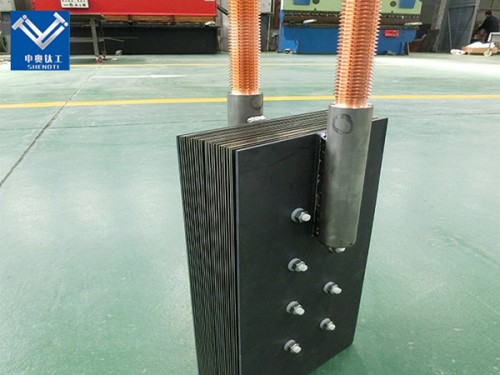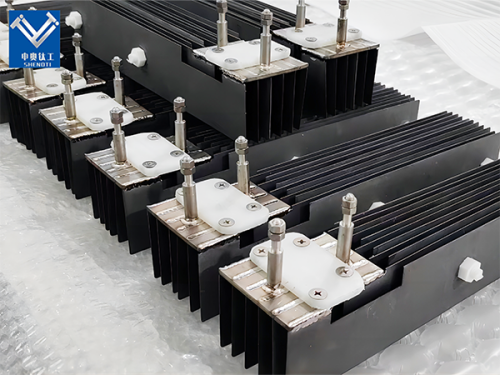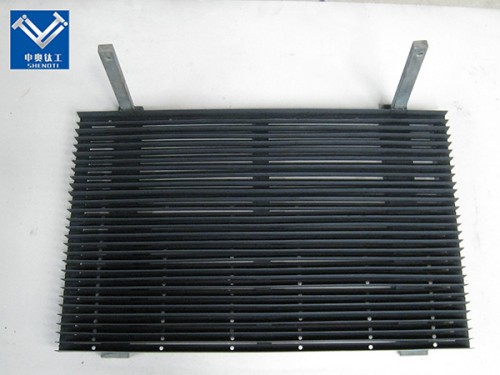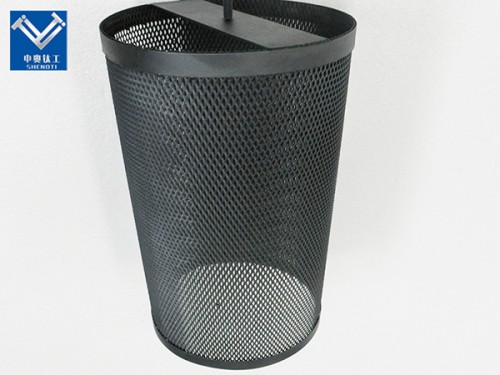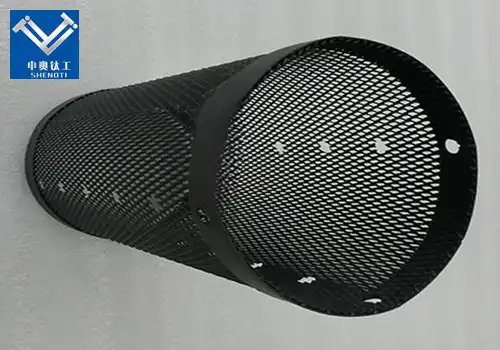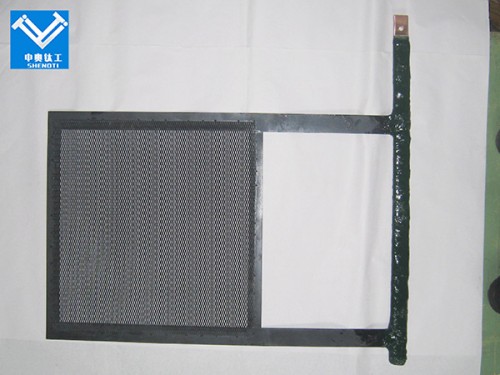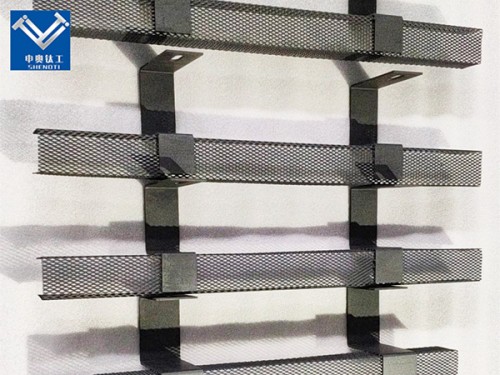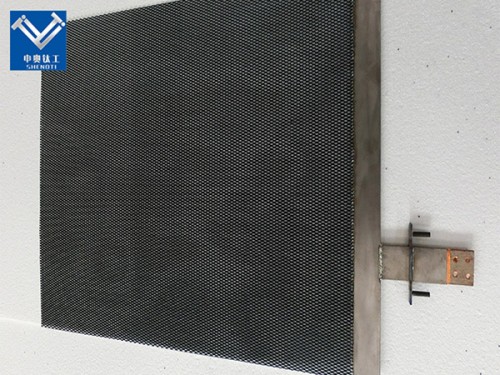
What is a Titanium Anode for Electrodialysis?
2025-08-27 16:20:04
Titanium Anode for Electrodialysis: Advanced Solutions for Water Treatment and Industrial Applications
In today’s world, clean water and efficient separation technologies are essential for both environmental protection and industrial production. Among the most innovative technologies, electrodialysis stands out as a reliable and energy-efficient method for desalination, wastewater treatment, and ionic separation. At the heart of this process lies the titanium anode for electrodialysis.
A titanium anode plays a vital role in maintaining stable electrochemical reactions, ensuring durability, and reducing operational costs. Its unique design and surface coatings make it superior to conventional electrodes. As demand for sustainable water treatment grows, industries such as pharmaceuticals, food processing, chemicals, and energy are increasingly adopting titanium anodes for electrodialysis to optimize performance.
What is a Titanium Anode for Electrodialysis?
Base Material: High-purity titanium, chosen for its corrosion resistance, lightweight nature, and mechanical strength.
Surface Coating: Mixed metal oxides (MMO) such as ruthenium oxide (RuO₂), iridium oxide (IrO₂), or platinum group coatings, which provide excellent electro-catalytic activity and long service life.
Structure: Available in plate, mesh, or tubular form depending on the electrodialysis system design.
The titanium substrate provides structural stability, while the MMO coating ensures stable current distribution and minimizes energy loss during ion exchange.
Manufacturing Process of Titanium Anode for Electrodialysis
1. Titanium Substrate Preparation
The first step is the careful selection of high-grade titanium sheets or meshes (typically ASTM Grade 1 or Grade 2 titanium). The titanium surface undergoes mechanical polishing, acid etching, and sandblasting to improve adhesion for the oxide coating.
2. Coating Application
The electrode surface is coated with a specially formulated solution containing metal oxide precursors. Techniques such as brushing, spraying, or dipping are used to apply multiple layers of coatings.
3. Thermal Treatment
After each coating, the electrode is heat-treated at controlled temperatures to form a stable oxide layer. Repeated cycles of coating and baking ensure a dense, uniform surface with strong adhesion.
4. Quality Control and Testing
Every titanium anode for electrodialysis undergoes rigorous testing:
Electrochemical performance test
Coating adhesion test
Accelerated life test in simulated electrolyte environments
This ensures high durability, low cell voltage, and excellent chemical resistance.
Why Choose Titanium Anode for Electrodialysis?
1. Superior Corrosion Resistance
Titanium naturally resists corrosion in both acidic and alkaline environments. When combined with MMO coatings, the anode can withstand chloride-rich solutions and oxidative reactions without degradation.
2. High Electrochemical Efficiency
A titanium anode for electrodialysis ensures uniform current distribution, minimizing voltage drop and reducing energy consumption during desalination or ion separation.
3. Long Service Life
Compared to traditional graphite or lead-based electrodes, titanium anodes last significantly longer, reducing replacement frequency and operational costs.
4. Environmentally Friendly
Titanium anodes eliminate the risk of toxic metal dissolution, ensuring environmentally safe operation.
Applications of Titanium Anode for Electrodialysis
1. Desalination of Brackish Water and Seawater
Electrodialysis is an effective method for removing salts from brackish water. Titanium anodes ensure stable operation, making desalination plants more efficient and sustainable.
2. Wastewater Treatment
Industries such as textile, mining, and electroplating generate wastewater containing heavy metals and salts. Using titanium anodes for electrodialysis, companies can recover valuable ions and reduce discharge pollutants.
3. Food and Beverage Industry
In dairy production, electrodialysis is used for whey demineralization, while in the beverage industry it is applied for juice concentration and acid removal. Titanium anodes guarantee hygienic, reliable, and long-lasting performance.
4. Pharmaceutical and Biochemical Fields
Titanium anodes are widely used in the purification of amino acids, antibiotics, and other biochemical products. Their precision and stability support high-purity production processes.
5. Energy and Chemical Production
From salt splitting to lithium recovery in batteries, titanium anodes for electrodialysis provide efficient separation solutions for high-value chemicals and renewable energy storage.
Case Studies: Titanium Anode for Electrodialysis in Action
1: Brackish Water Treatment Plant in the Middle East
A desalination facility adopted titanium anodes for electrodialysis to reduce operational costs. By switching from traditional electrodes to titanium MMO-coated anodes, the plant achieved a 30% reduction in power consumption and doubled electrode service life.
2: Pharmaceutical Amino Acid Production
A pharmaceutical company required high-purity amino acids for drug formulations. Titanium anodes ensured stable current efficiency, improving production yield by 25% while maintaining product purity.
3: Electroplating Wastewater Recycling
An electroplating factory in Asia integrated titanium anodes for electrodialysis to recover nickel and copper ions from wastewater. The system not only reduced environmental discharge but also generated economic returns by recycling valuable metals.
How to Choose the Right Titanium Anode for Electrodialysis
When selecting a titanium anode, consider the following:
Coating type (RuO₂, IrO₂, or mixed oxides) depending on the electrolyte composition.
Anode structure (plate, mesh, or tubular) to match your system’s design.
Current density tolerance for high-efficiency operation.
Expected service life under specific operating conditions.
Supplier expertise to ensure quality and technical support.
As industries demand more efficient, eco-friendly, and cost-effective water treatment and separation technologies, the titanium anode for electrodialysis has become a critical solution. Its corrosion resistance, long service life, and high electrochemical efficiency make it indispensable in desalination, wastewater treatment, food processing, pharmaceuticals, and chemical production.
By choosing high-quality titanium anodes, companies can reduce operational costs, enhance sustainability, and achieve reliable long-term performance.
For more information about titanium anode for electrodialysis, customized solutions, or technical consultation, please Contact Us today.
Contact Us:
📧 Email: zh@baojiti.com.cn
Phone: 18729731603
Website: https://www.shenaocladplate.com
YOU MAY LIKE











